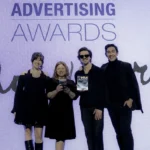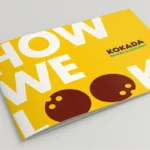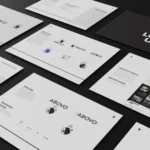By Jack Winders.
Take a moment and think of profound song lyric. Or your favorite poem, passage or verse. A sound bite that made you stop and listen, or a company slogan that resonates with you. Whatever it is you think of, something brought it to mind while others failed to make the cut (for me, it’s, “I started out for God knows where. I guess I’ll know when I get there,” from the late Tom Petty’s Learning To Fly). While there are many factors influencing why your mind jumped to whatever it did, chances are it makes good use of the poetic function of language.
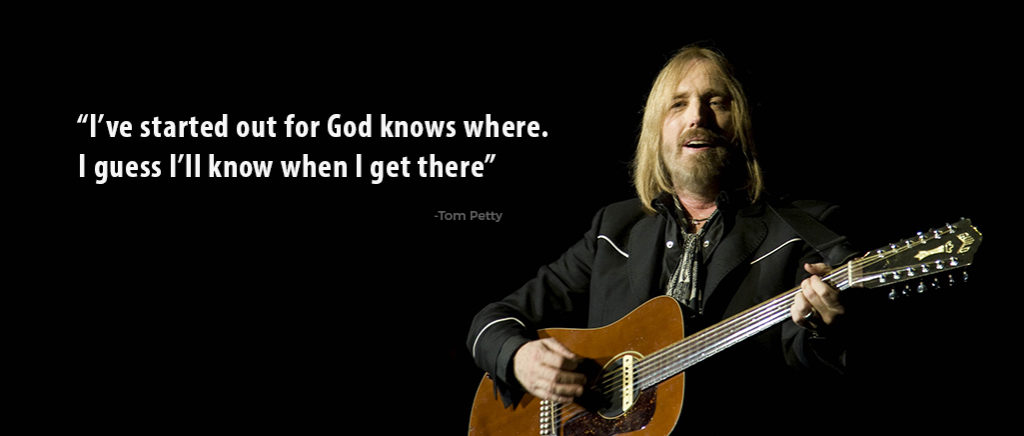
The Ten Minute Multitask sat down (well, road shotgun) with Kevin Moch, a University of California Berkeley graduate student studying classic literature who who believes the strongest marketing/branding can be found in poetic function of language. As Moch explains, “The poetic function of language is a concept developed by literary theorist, Roman Jakobson and essentially explains why some uses of language are able to evoke certain emotions and feelings while others do not.”
“There is a reason poetry feels different when you read it rather than some sort of other text,” says Moch. As a language expert and a consumer, he knows how valuable words are for a brand when it comes to conveying values through slogans and campaigns.
“I want to confirm you aren’t telling people to write poems for their slogans,” says Andrew Young, host of the 10MM. “The poetic function of language doesn’t mean that you’re writing poetry,” Moch explains. “It has to do with the subterranean connections between words, ideas and things that connect lttle parts of language that we don’t think about actively, but that make things interesting to listen to,” he continues.
With a brief introduction to the poetic function of language out of the way, Moch moves on to providing “tools” for business owners, employees or marketing personnel to use in order to develop creative concepts for their brand. Within the poetic function of language are two central concepts: 1. Connotation; 2. denotation. Understanding the interplay between the two can be a great aid in connecting with your customers, and “deepening the message given to the people consuming products,” he says.
Denotation
Put simply, the denotation of any given word is the literal meaning of that word. “The denotation of any single word, like car, is what that thing is. A car is a vehicle that drives down the road,” Moch explains.

Connotation
Connotation refers to the “wider web of association” people have when they hear a certain word. Again using car as an example, Moch explains how for different people, the word will have different connotations. “With cars, people think about speeding down the highway, they think about status symbols, they think about things they are able to use their wealth to buy. We have all of these other connotations that come with the word car that have nothing to do with the physical thing itself,” he continues.

To give a clearer picture of how the concepts of denotation and connotation can be valuable for a brand, the conversation turns to discussing real-world slogans which illustrate the poetic function of language. Alerus Financial, a bank located in Fargo, ND among other locations, has a number of slogans that resonate well with people and are worthy of closer inspection.
The first slogan Andrew highlights:, “More listeners than tellers.” Using only four words, it sends a very effective message. Breaking it down, Moch explains how on the denotative level, we understand the word “teller” as a person who tells one something. “As a bank, if they say, ‘We listen more than we tell,’ there is this idea that they are focused on you and listening to what you want, rather than telling you what to do,” he says. On the connotative side, there is an additional layer because the word “teller” also refers to a bank teller. Through this double meaning of the word, they are, “connecting it to the identity of the bank, while also connecting it to, denotatively, the message they want to send,” Moch explains.
The second campaign slogan the two discuss is, “We’re all about you, but enough about us.” The first thing Moch notices is how it starts with “we” and ends with “us”, which effectively, “makes a circle as a phrase and rounds itself out,” he explains. Beyond that, “It subverts your expectations.” We hear the phrase “we’re all about you” (or others just like it) all the time from companies trying to place emphasis on customer service. By ending with, “but enough about us,” it reveals that all these other companies are really talking about themselves. “At Alaras, they’ve realized even that is talking too much about yourself,” says Moch. While he acknowledges this example doesn’t fit exactly within the scope of connotation and denotation, Moch explains how the “reversal from the front half to the back half” of this slogan is another powerful aspect of the poetic function of language. “It’s playing with language and being willing to subvert yourself mid-sentence,” he says.
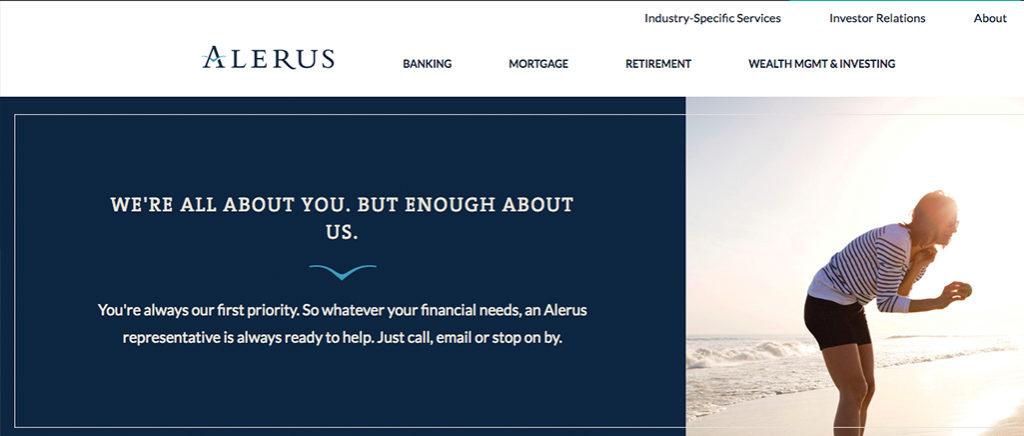
By now you might be wondering how the poetic function can work for your brand. If so, Moch has some pointers to get you moving in the right direction. As a first step he suggests making a couple of lists related to your business or industry. “On one side, you could have all the words, concepts or phrases that if a person on the street heard them, they would think of your industry.” On the other side, think of your values and the things you want to communicate. After writing down their denotations on both sides of the list, the next step is to think of the wider web of associations for all of the different words you have written down, and see how they can be connected. “When you can find those places where they overlap, that’s where the poetic function starts firing in people’s brain. It makes them really enjoy hearing these things, and it makes them more effective,” says Moch.
Making use of the poetic function of language is one more way to connect with your customers on a deeper level. Despite the implications of the name, our guest is not telling you to start writing poems for your brand. Rather, he is encouraging you to “be playful with language” and see how creative word choice can help grow your brand. In a world full of slogans, the poetic function of language can allow yours to shine through.

